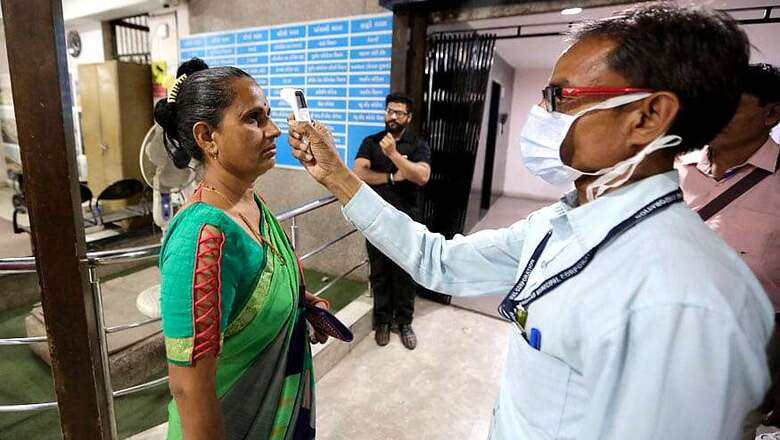
views
New Delhi: The Indian Council of Medical Research (ICMR) last week announced it had begun testing random samples of influenza-like illness and severe acute respiratory-like illness to check for community transmission of coronavirus.
The apex body started by testing 150 samples at 13 of its virus research and diagnostic laboratories (VRDLs). In its second round of random testing, the ICMR picked up over 1,020 samples across 51 VRDLs in India -- its scientists have said this process will be repeated. Out of the 1,020 samples, 500 have already returned negative.
However, experts have questioned if the size of the random samples is enough to detect community transmission on time. ICMR scientists have justified the sample size.
Professor Gagandeep Kang, executive director of Faridabad-based Translational Health Science and Technology Institute, said it is important to know what assumptions ICMR has made and what was the modelling done driving its decision to arrive at the existing sample size. She said random sampling is the right thing to do, but the question is whether it is enough.
“If we go with the 500 cases and there is community transmission, we will get a signal. But we cannot say with confidence how much we are missing until you have got the signal,” said Kang.
She said the need of the hour was to know if there is community transmission and what is the extent of the spread in order to prepare the healthcare system. Kang also raised questions about ICMR's testing protocol, which has included symptomatic healthcare workers who are treating those with severe respiratory illness.
“It effectively means that you had a patient coming to your hospital who had an infection long enough for it to be severe. Then that patient, who was not tested, infected a healthcare worker and the healthcare worker developed symptoms,” she added.
Speaking on the size of the samples, Dr Raman R Gangakhedkar, head of epidemiology and communicable diseases division at ICMR, said, “These samples are proportionate to the local universe they are being picked up from. We are testing 20 samples at each of our labs, so in a month's time you would have screened 80 patients who have been admitted in intensive care units for severe respiratory illness.”
Gangakhedkar said they also have to keep in mind the number of ICU patients and beds. "The frequency of the collection, too, has to be proportionate to the size, it may look like a small number but it is not a small sample size,” he added.
According to Dr Manoj Murhekar, director of Chennai-based National Institute of Epidemiology, the samples are being collected from medical college hospitals distributed across the country.
When asked about reports of patients with light symptoms being turned away from testing, Gangakhedkar said, “You can speculate, but do we have evidence to suggest that asymptomatic infections are occuring in the population and they are spreading infections, we still don't have that. If there are infections from asymptomatic individuals, we will at least detect a few symptomatic cases. Other countries have established community transmissions so their strategies are different.”
Gangakhedkar said the ICMR's priority is to find out "if we are moving into the third stage of community transmission through surveillance, which is an ongoing activity".
Kang said liberalising the testing protocol is necessary but it depends on what we want to look for.
“Everything depends on the question you want to answer. Is your question going to be about an individual patient, for a community, for the country or for the world?" she asked. "Depending on what question you are answering, you will decide what the sampling strategy needs to be."

















Comments
0 comment